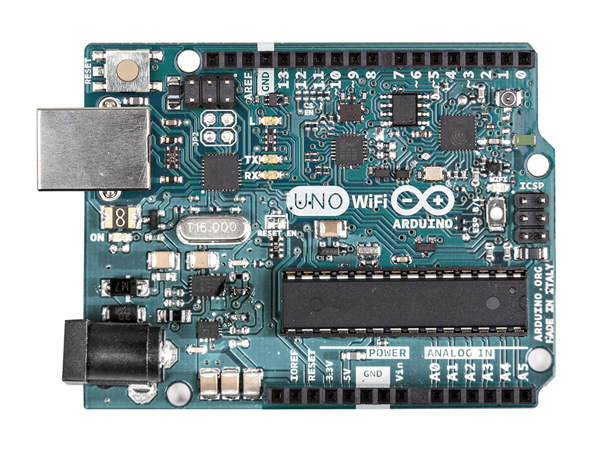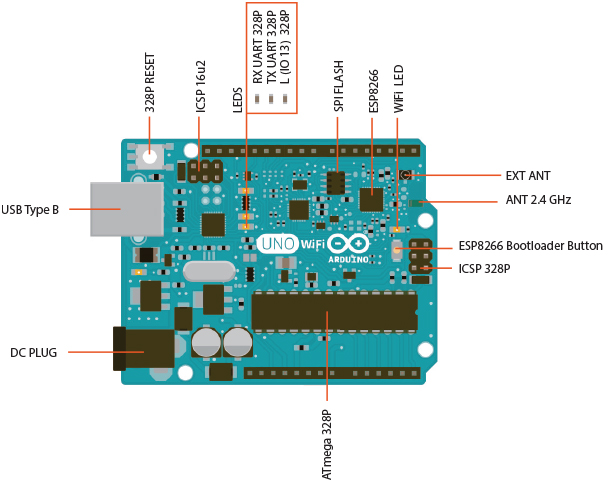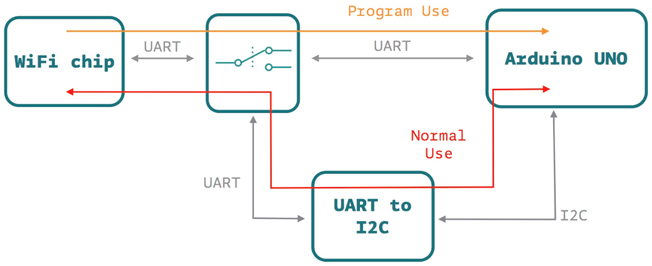Arduino.org (Arduino Srl) has launched Arduino UNO WiFi board, bringing Arduino (Atmel ATMega328P MCU) and ESP8266 together, and adding WiFi to the popular Arduino UNO board, while keeping all existing interfaces and headers.
 Arduino UNO WiFi (A000133) board specifications:
Arduino UNO WiFi (A000133) board specifications:
- Arduino part
- MCU – Atmel ATmega328 8-bit AVR MCU @ 16 MHz with 32 KB flash Memory, 2KB SRAM, 1KB EEPROM
- Digital I/O pins – 14, with 6 PWM and UART
- Analog Input Pins – 6
- DC Current per I/0 – 40 mA
- Misc – Reset button
- Operating Voltage – 5 V
- ESP8266 part
- SoC – Expressif ESP8266EX Tensilica Xtensa LX106 processor @ 80 MHz
- Storage – 4MB SPI flash
- Connectivity – 802.11 b/g/n WiFi @ 2.4 GHz, wake up time < 2 ms; Antenna: PCB and IPX
- Misc – Bootloader button, WiFi LED
- Operating Voltage – 3.3 V
- Common specs
- USB – 1x USB device port
- Input Voltage – 5-12 V via DC jack, Vin or USB port (5V only)
- Power Consumption – 130 mA (sleepmode 80 mA)
- Dimensions – 68.5 x 53 mm
- Weight – 28 grams
The board is open source hardware with the schematics (PDF and DSN) soon to be released, and is programmed using the Arduino IDE by selecting “Arduino UNO WiFi” board, and the Ciao library can be used to play with REST, MQTT, etc… You won’t even need a USB connection to upload your sketch as it can be done over WiFi just like with Arduino Yun. The Atmel AVR MCU and ESP8266 processor communicate via either UART or I2C as shown in the diagram below.
- /arduino/digital/13/1 – Sets GPIO 13 to high
- /arduino/digital/13 – Reads the value on GPIO 13
- /arduino/analog/2 – Reads Analog pin 2 value
- /arduino/mode/13/input – Set GPIO 13 to input
Price and availability of the board have not been disclosed. You can visit Arduino UNO WiFi product page for more information.

Jean-Luc started CNX Software in 2010 as a part-time endeavor, before quitting his job as a software engineering manager, and starting to write daily news, and reviews full time later in 2011.
Support CNX Software! Donate via cryptocurrencies, become a Patron on Patreon, or purchase goods on Amazon or Aliexpress






